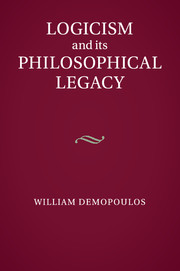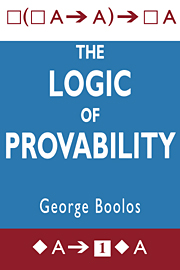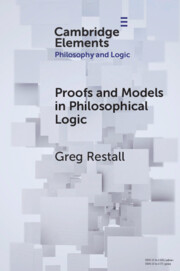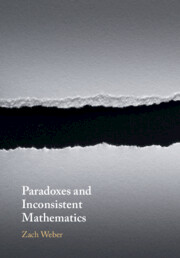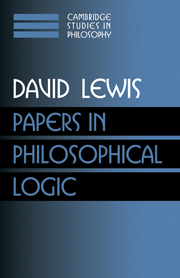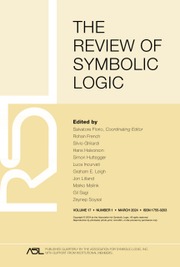Logicism and its Philosophical Legacy
The idea that mathematics is reducible to logic has a long history, but it was Frege who gave logicism an articulation and defense that transformed it into a distinctive philosophical thesis with a profound influence on the development of philosophy in the twentieth century. This volume of classic, revised and newly written essays by William Demopoulos examines logicism's principal legacy for philosophy: its elaboration of notions of analysis and reconstruction. The essays reflect on the deployment of these ideas by the principal figures in the history of the subject - Frege, Russell, Ramsey and Carnap - and in doing so illuminate current concerns about the nature of mathematical and theoretical knowledge. Issues addressed include the nature of arithmetical knowledge in the light of Frege's theorem; the status of realism about the theoretical entities of physics; and the proper interpretation of empirical theories that postulate abstract structural constraints.
- A rich collection of classic, revised and newly written essays by a leading commentator on twentieth-century analytic philosophy
- Ranges over the work of major figures including Frege, Russell, Ramsey and Carnap
- Relates the history of logicism to current concerns about the nature of mathematical and theoretical knowledge
Reviews & endorsements
"...will primarily interest specialists in the philosophy of science, the philosophy of mathematics, and the history of analytic philosophy.... Unlike other collections which provide an overview of their author's major ideas over the course of a career, this one also contributes to current scholarship. Demopoulos mines the work of Frege, Russell, Carnap, and Ramsey to argue that attending to the history of logicism (understood broadly as the use of logical analysis to reveal what is distinctive about arithmetical knowledge) grants empiricists a deeper understanding of how to view the epistemic character of different parts of their theories.... I certainly recommend this stimulating collection. Demopoulos' critical engagement with Ramsey's dense and sometimes neglected opus, as well as his new work on the significance of fundamental identity criteria, makes this book an important contribution.... Demopoulos demonstrates an impressive ability to draw out the philosophical importance of technical results. Such passages serve as a model for those of us interested in finding a broader philosophical audience for formal work."
--James Pearson, Bridgewater State University, Notre Dame Philosophical Reviews
"As a philosophy major at the University of Western Ontario in 1995 I was fortunate enough to enroll in Demopoulos' history of analytic philosophy class … The essays in this volume preserve the intensity and commitment to rigorous argumentation that I first encountered in that class twenty years ago. … I look forward to Demopoulos' next contribution to these important debates."
Chris Pincock, The Journal of Bertrand Russell Studies
Product details
March 2015Paperback
9781107502581
286 pages
229 × 153 × 16 mm
0.42kg
2 b/w illus.
Available
Table of Contents
- Preface
- Introduction
- 1. Frege's analysis of arithmetical knowledge
- 2. Carnap's thesis, on extending 'empiricism, semantics and ontology' to the realism-instrumentalism controversy
- 3. Carnap's analysis of realism
- 4. Bertrand Russell's The Analysis of Matter: its historical context and contemporary interest with Michael Friedman
- 5. On the rational reconstruction of our theoretical knowledge
- 6. Three views of theoretical knowledge
- 7. Frege and the rigorization of analysis
- 8. The philosophical basis of our knowledge of number
- 9. The 1910 Principia's theory of functions and classes
- 10. Ramsey's extensional propositional functions.

